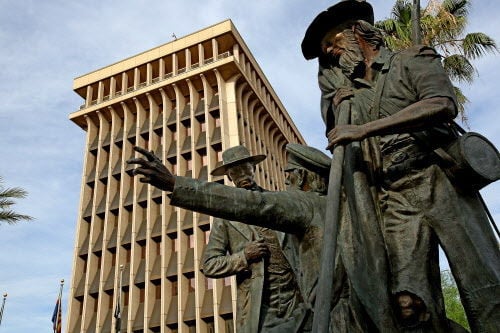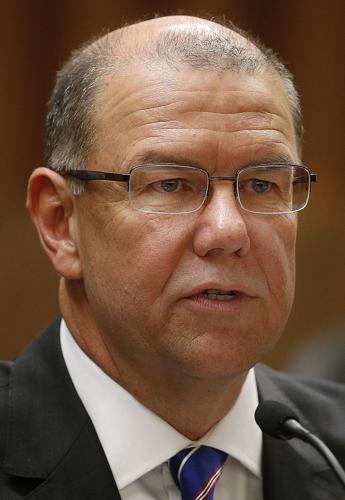City Manager Michael Ortega has a multiyear plan to balance the city budget, but it’s not going to be business as usual, he said — and it “might be painful.”
Ortega, who has been on the job since June, briefed the City Council on the plan during a retreat Friday. He’ll take the following actions:
- Implement a hiring freeze immediately to save up to $18 million a year. The freeze would not apply to public safety jobs.
- Offer two kinds of buyout programs. One would give 206 employees who are eligible for retirement an incentive to retire by the end of January. If 90 people take the deal, the city could save about $1 million this fiscal year and more when it keeps some of those vacancies frozen. Another would be open to a yet-unknown number of employees who are close to retirement eligibility.
- Allow attrition to grow to 140 workers per year to save about $3 million. Some who quit would be replaced, but departments would have to show the jobs are critical.
- Cut 40 new hires still on probationary status. It makes the hiring freeze retroactive, Ortega said, and would save about $2.8 million.
- Beyond those actions, Ortega told the council that job cuts are “probable.” But when and where depend on how well the other actions work.
- For the remaining employees, Ortega said the city must improve pay.
Salaries and benefits account for nearly two-thirds of the city’s general-fund budget, and the city must take action now to prepare for lower revenues and higher expenses for things like pensions and health benefits, Ortega said.
This year’s structural deficit is $12.7 million.
“We need to do it now,” Ortega said. “If we do nothing and we wait until July 1, 2016, the hole gets a lot deeper.”
The city workforce already had been shrinking. Since 2008, the city has cut 1 in 5 jobs.
That has led to a politically charged and competitive culture in the workplace, Ortega said. Instead of talking about what the city’s future should look like, he said, “we have fallen into survival mode.”
The city needs to work toward financial stability and “extraordinary” customer service, Ortega said. His plan would result in a balanced operations budget by July 1, 2018, and a balanced capital budget by July 1, 2020.
Mayor Jonathan Rothschild was pleased with the plan.
“The city is going to have to operate differently,” he said, “and the manager has laid out an excellent blueprint and set of options so that city government can provide more efficient services.”
Once voter confidence in city leaders has improved, the city could ask voters for a sales-tax increase, Ortega said.
He suggested three ballot questions that would each ask for one-fifth of 1 cent. One would help pay for roads, another for transit, and a third for capital needs such as replacing aging police cars.
Rothschild previously suggested a half-cent sales-tax increase to benefit a specific service, such as transit or police.






